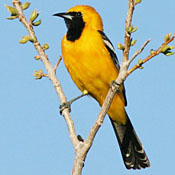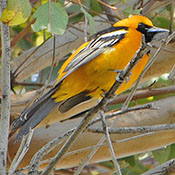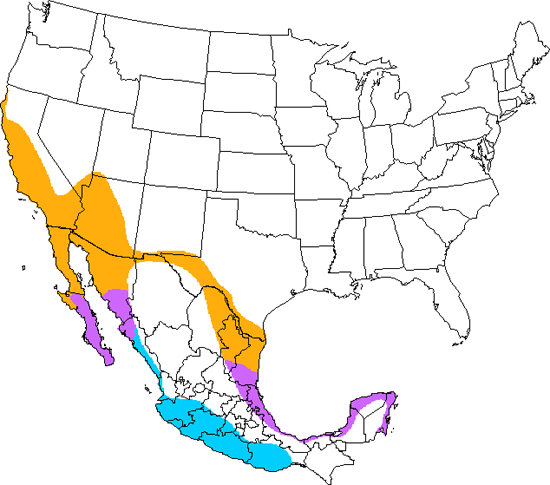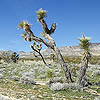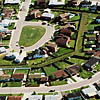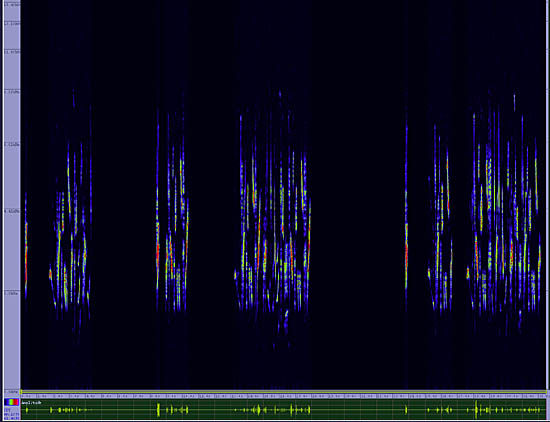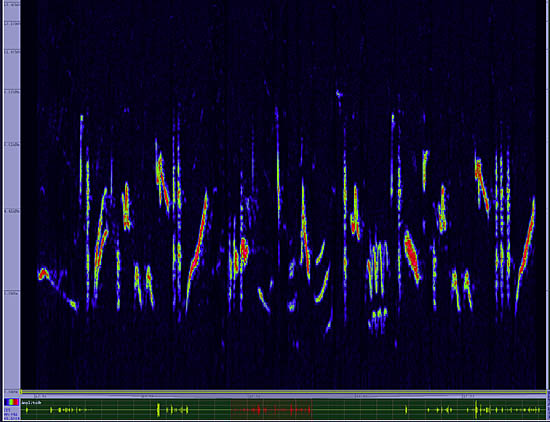Hooded Oriole
Icterus cucullatus

Perching
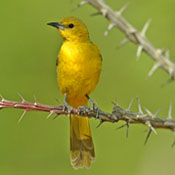
Length: 8 in. (20 cm )
This beautiful bird is a harbinger of Spring in the Southwest. It feeds on nectar, fruit and insects in the wild, and it is thus easily attracted to humming bird feeders and orange halves placed out for it, especially in March and April when it first returns from its wintering grounds in Mexico. The long, hanging nest is woven from palm fibers and grass and often suspended in the crown of a palm tree. The Hooded Oriole will maintain its population in suburbs, but only if parasitizing cowbirds do not become too common.
The four-digit banding code is HOOR.
Bibliographic details:
- Article: Hooded Oriole
- Author(s): Dr. Biology
- Publisher: Arizona State University School of Life Sciences Ask A Biologist
- Site name: ASU - Ask A Biologist
- Date published:
- Date accessed:
- Link: https://askabiologist.asu.edu/activities/bird/hooded-oriole
APA Style
Dr. Biology. (). Hooded Oriole. ASU - Ask A Biologist. Retrieved from https://askabiologist.asu.edu/activities/bird/hooded-oriole
Chicago Manual of Style
Dr. Biology. "Hooded Oriole". ASU - Ask A Biologist. . https://askabiologist.asu.edu/activities/bird/hooded-oriole
Dr. Biology. "Hooded Oriole". ASU - Ask A Biologist. . ASU - Ask A Biologist, Web. https://askabiologist.asu.edu/activities/bird/hooded-oriole
MLA 2017 Style
Be Part of
Ask A Biologist
By volunteering, or simply sending us feedback on the site. Scientists, teachers, writers, illustrators, and translators are all important to the program. If you are interested in helping with the website we have a Volunteers page to get the process started.

